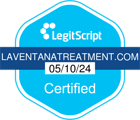The Rainbow Community
The term “rainbow community” is often used as an inclusive and umbrella term to refer collectively to individuals who identify as lesbian, gay, bisexual, transgender, queer, questioning, intersex, asexual, pansexual, non-binary, genderqueer, and other diverse sexual orientations and gender identities. It encompasses a wide spectrum of identities and experiences within the 2S/LGBTQIA+ community.
The rainbow community emphasizes diversity, inclusion, and solidarity among individuals who share marginalized identities related to sexual orientation, gender identity, and expression. It acknowledges the varied ways in which people experience and express their gender and sexuality, and it embraces the richness of this diversity.
The rainbow community is united by shared experiences of discrimination, stigma, and societal challenges, as well as by collective efforts to advocate for 2S/LGBTQIA+ rights, promote acceptance and visibility, and create affirming spaces and communities.
Overall, The Rainbow 2S/LGBTQIA+ communities still experience significant emotional distress and mental health challenges as a result of stigmatization, victimization, discrimination and barriers to accessing mental healthcare services. Specifically, 2S/LGBTQIA+ people still experience a magnitude of mental health problems, and there are few empirically supported approaches for working with 2S/LGBTQIA+ in clinical settings. La Ventana Treatment Programs provides this. Our healthcare providers acknowledge and apply their ethical duty to treat all people with respect and dignity, this can help to relieve the mental health disparities of 2S/LGTBQIA+ people. La Ventana healthcare providers support 2S/LGBTQIA+ individuals to develop resilience and challenge social discourses that maintain discriminatory and stigmatizing practices. To meet the diverse needs of the 2S/LGBTQIA+ community, La Ventana reviews. explores and compares mental health challenges across different subgroups.
La Ventana’s therapy for the Rainbow Community is affirming, inclusive and sensitive to the individualized experiences of each client. Our environment is therapeutic where clients feel empowered to work on their self-identities towards personal growth and well-being.























